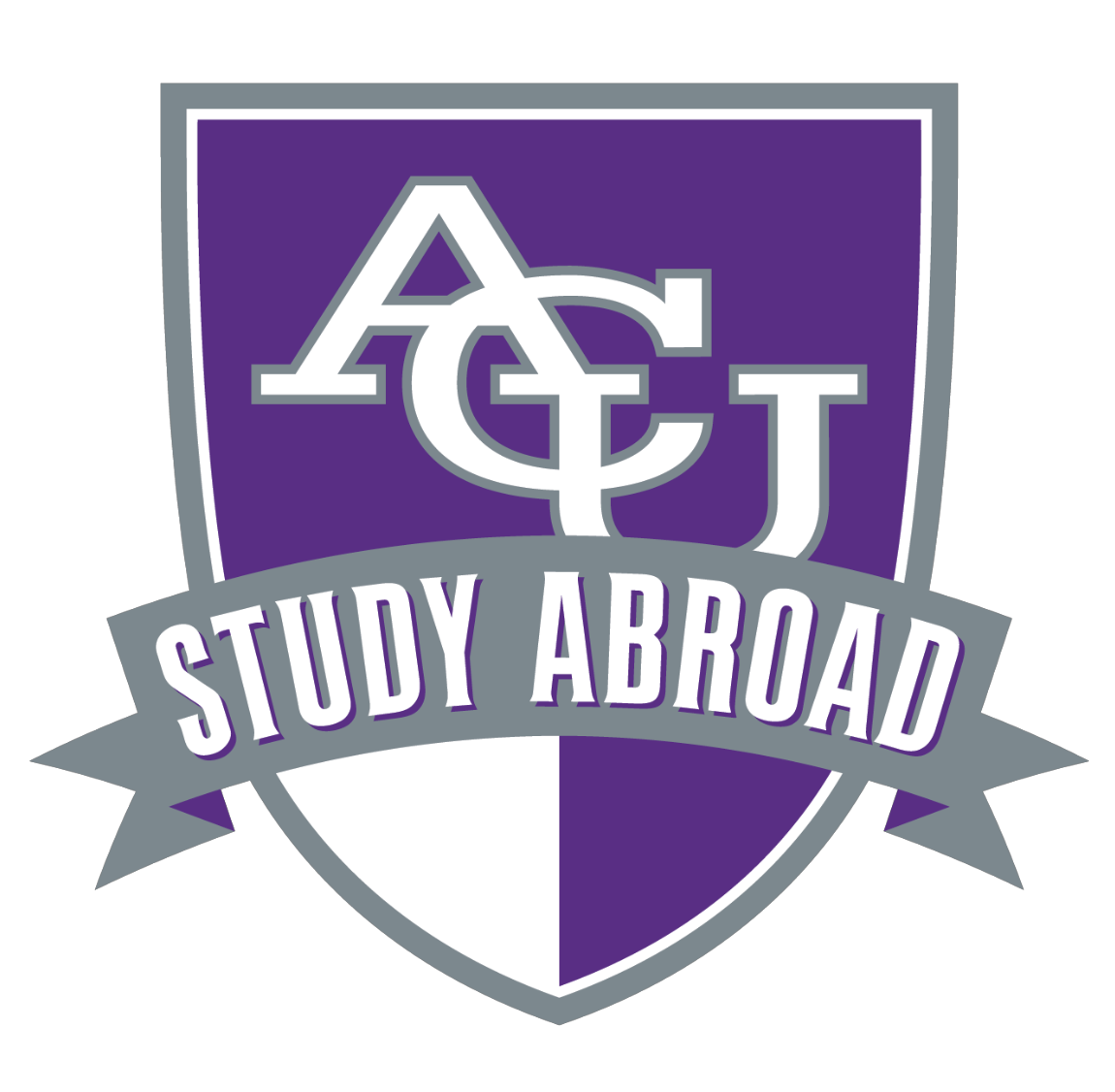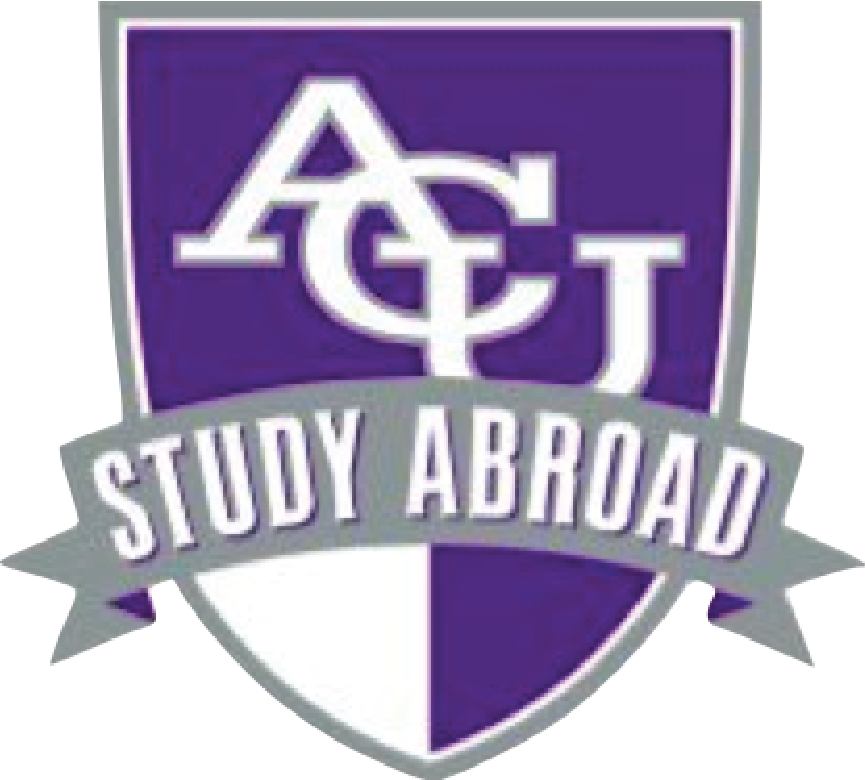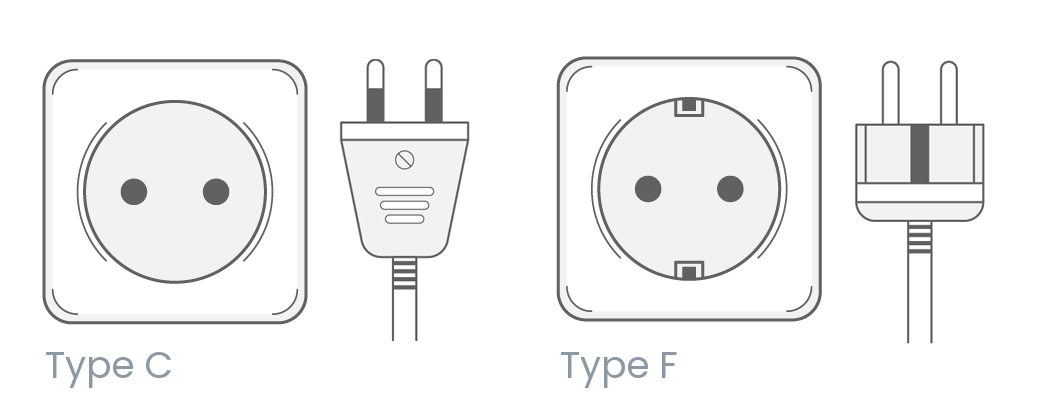
PREPARING TO GO
Study Abroad Calendar // Pre-Departure // Passport Guide // Packing // Departure // Living Overseas // Phone Plans // Electronics // International Students
Future Study Abroad Student Calendar
Pre-Departure Meetings
Passport Guide
Packing
All students will be allowed one standard size “checked” bag under 50 lbs. and one carry-on, plus a personal item that will fit under the seat in front of you (purse or small backpack). For specific dimensions, look up the requirements set by your airline. If you wish to bring more than one checked bag, you can pay the airline for it at check-in. However, we like to live by the “less is more” motto, since you will be responsible for carrying your own bags. We also have laundry available in all of our houses, and there is plenty of shopping available. As you pack, please note that pepper sprays are often legal to transport or own outside of the United States, including in the UK and multiple EU countries. Tasers are illegal virtually everywhere outside of the United States. If you have specific questions, please don’t hesitate to contact us!
Programs will provide all bedding (pillows, towels, duvets, pillow cases, sheets, etc). Students should NOT pack these items.
Departure
What are the approximate dates of a Study Abroad program? Fall programs start after Labor Day and end in early December. Spring programs begin after the conclusion of the winter holiday period and return in early to mid-April. Summer I programs depart on May 15 and return on June 15. Summer II programs depart on June 19 and return on July 15. Travel breaks and other on-site schedule details change from program to program, so please refrain from planning any travel until you have received a detailed calendar for your program. Program calendars can be found here.
Where do we depart from?
For Fall and Spring Terms: All students and faculty will depart after a farewell reception at DFW on their scheduled departure day. Students, friends, and families are all welcome and encouraged to attend the reception. ACU international programs staff will be present to check students in, distribute insurance cards and other critical final documents, and provide support. We recommend that students plan their transportation to DFW well in advance and pay close attention to correspondence from ACU International Programs/Study Abroad.
For Summer Terms: All students and faculty will depart directly from DFW on their scheduled departure day. There will be no official meeting place or time, but students are required to check-in for their flight at DFW at least 3.5 hours before departure. Groups may use their WhatsApp chat groups to arrange meeting times/place if they prefer, or simply meet at the gate.
Can a student’s family come to the farewell ceremony in the Fall/Spring? Parents are welcome and encouraged to participate.
How much luggage can I bring? Luggage limits are determined by the airline. Due to the dynamic nature of airline policies regarding luggage, we direct the student to the airline’s website as soon as we confirm what airline will be used. Students can typically expect to have one 50 lb (23 kg) checked bag, a carry-on bag (within airline specifications), and a personal item (i.e., laptop bag, backpack, purse, etc.)
Living Overseas
What is the housing situation for Study Abroad students?
All students will live in ACU facilities. In all cases, the facility also includes an apartment for local staff or the faculty-in-residence. Student rooms range from single rooms to shared rooms with two or three roommates and community bathrooms.
Our facilities also have kitchens for student use. Bedding and linens are provided in all locations. All ACU Study Abroad facilities are in safe neighborhoods near parks, public transportation, cafes, stores, and markets.
What classes will I take, and who will teach them?
For semester programs, students are required to enroll in at least 12 hours of ACU courses. These courses are chosen to further you in your degree plan and allow any major to spend the semester abroad. Courses are taught by our on-site directors, the ACU faculty-in-residence, and other local professors. While our programs feature traditional classroom coursework, our ACU study abroad programs frequently feature hands-on, experiential learning through local excursions and field trips throughout the host country, the host continent, and beyond.
For summer programs, students are required to enroll in at least 3 hours of classes and some programs have higher 6-hour requirements. Courses are generally taught by the ACU faculty-in-residence, though other local professors and the ACU Program Director may also teach additional courses. Summer programs feature traditional classroom coursework and hands-on, experiential learning in the form of local excursions and field trips within the host country and nearby areas.
Will I have access to the internet at ACU international houses?
Yes, wireless internet access is available in all our facilities.
Will I have opportunities to travel?
Yes! In addition to structured, guided educational field trips and local excursions, independent student travel is a hallmark of the ACU study abroad experience. Our students frequently travel on the weekends and extended travel breaks during their time abroad. '
All student travel must be logged in the ACU Travel Tracker each week and is routinely reviewed by Study Abroad and the Office of Risk Management. Students are allowed to freely travel to any country designated by the US Department of State as Level 1 or 2. Students may apply for a travel exemption to countries categorized as Level 2+.
More information can be found on the Travel section of our website.
How is the Study Abroad office prepared for a medical, political, or natural emergency?
The Study Abroad office has detailed emergency response plans, local staff at each facility, and partnerships with local embassies and law enforcement agencies in our host countries. ACU purchases medical/evacuation insurance for each student and encourages students to register with the U.S. State Department.
In the event of an emergency, ACU will work with local staff, legal authorities, law enforcement agencies, and governmental agencies to provide support to students.
For more information on student safety, please click here.
Where can I go for more information about studying abroad?
If you have questions about our application process or programs, please email the Study Abroad Office at studyabroad@groupmail.acu.edu.
If you would like more information about passports, please go to https://travel.state.gov.
For general information about your student’s destination and possible travel opportunities, we suggest exploring the Future Students section of our website.
Phone Plans
There are several options for how best to use your phone while you are abroad.
Most students get an international plan with their US number and activate that once they get to their prospective location. It is highly recommended that students check with their service provider as to costs, and what types of plan alternatives may be available to them while they are abroad prior to departure. Popular options:
Another option is for students to turn off their cell service and connect to wifi at coffee shops, restaurants, stores and public transportation hubs. This is easily done as wifi is accessible almost anywhere and students seem to have no problem with finding wifi around the cities they visit. Local pay-as-you-go phone plans can also be purchased for around $15-20 in your study abroad location. These places will be pointed out to you on the first day of orientation and would require you to swap out the current SIM card on your phone.
Electronics
We want to make sure that you can get the electricity you need for all your devices in a way that keeps you, your items, and our facilities safe. Here are some things you need to know:
1. OUTLETS IN OXFORD/LEIPZIG/VALENCIA ARE 230V, OUTLETS IN THE U.S. ARE 120V.
Check to make sure that the items you are bringing to your location are rated for voltage at 230V. This information is usually written on the back of your device or the electrical cord. Most digital electronics, such as laptops, iPads, and iPhones, are rated for voltages that range from 110-230V. For items rated for 230 V, you only need to purchase an adaptor, not a converter. If your items are not rated for 230V, you should leave them at home. We recommend that you leave all items requiring a converter at home.
2. BUY THE RIGHT ADAPTOR FOR YOUR ITEMS RATED FOR 230V.
Not all plugs are the same, so not every “European” or “South American” plug adaptor will work for your needs. Each study-abroad location will feature different outlets unique to the country you reside in (see the picture below for examples of what to look for). We recommend purchasing a world traveler adaptor kit (like this one) so students can be prepared for any country they might visit outside of their host country.
United Kingdom Outlets
Germany/Spain Outlets
3. LEAVE YOUR U.S. APPLIANCES AT HOME.
In the US, hairdryers, flat irons, and other appliances are not rated for 230 V. Even with a converter, these appliances often blow fuses, break converters, and can even start fires when they are plugged into ACU facility sockets. Leave these items at home! Within the first 24 hours of your arrival, you will be shown where to buy local appliances that are rated for 230 V. Any appliance we consider to be dangerous to our electrical system will be confiscated.
4. CONVERTERS DO NOT WORK WELL.
Each semester we have several students whose converters break and destroy their devices. Bring converters for items not rated for 230V only if the item is absolutely necessary (medical equipment, sleep apnea machines, etc). Otherwise, common appliances are available at every study-abroad destination.
Study Abroad Recommends:
Don’t bring items that need a converter.
Don’t bring power strips or U.S. extension cords. Power strips can be purchased locally.
Purchase 1 or 2 adaptors for your dual-voltage rated items. Additional adaptors can be purchased locally if you need them. Here are some inexpensive options online:
For more info on power outlets in foreign countries, visit:
Special Considerations for International Students
We want ACU international students to have the opportunity to study abroad…again! However, many visa and immigration considerations must be undertaken before you sign your contract for an ACU study abroad opportunity. Our colleagues at ACU’s OISVS have put together this helpful guide to assist you as you think through your options. For additional help discerning what is best for you, do not hesitate to reach out to Lucy Dawson, Associate Director of OISVS.



